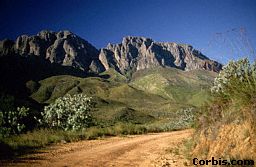| Group | Germanic (with German, English, Swedish etc.), West Germanic (with Dutch, English, Frisian etc.) |
| Geography | South Africa |
| History | Afrikaans was formed by Dutch colonists in Africa in the 17th century. Originally Afrikaans was a popular dialect composed of Dutch with a lot of borrowings from aboriginal languages of Africa. Though the official language of South African colonies was Dutch, Afrikaans was spoken by farmers who left Cape town seeking for better lands to the north. In the 19th century, when the Republic of Transvaal and the Orange Free State were founded, Afrikaans became an official speech there. In South Africa, Afrikaans was proclaimed the official language in 1914. |
| Phonetics | The same as in Dutch, there are no long consonants in Afrikaans, nor
has it an aspiration after p, t, k at the beginning of the
word - unlike all other West Germanic languages (e.g. English cat
is pronounced with an aspiration [khæt]).
Afrikaans is almost the only Germanic language which uses nasal vowels, especially before s (wens [we:s]). The initial Dutch g, v, z turned into [x], [f], [s] (soek 'to seek'). Another difference from Dutch is the combination [sk] instead of Dutch [sx] (Dutch school, Afrikaans skool 'school'). |
| Nominal Morphology | Afrikaans can be considered as the most analytic of all Indo-European languages. In the process of development its declension was subject to radical simplification. The noun fully lost the gender distinction; the plural number is formed by the endings -e and -s. The declension disappeared, the the relations in the sentence are expressed by word order or by means of prepositions. There is a definite article die which is not declined, and an indefinite one 'n in singular. |
| Verbal Morphology | The verb is characterized by the complete loss of person and number. The past simple tense was lost, and of all the tenses, the Present, the Perfect, the Future I-II, and the Future in the Past were preserved. The original Germanic strong verbs (English irregular verbs) do not exist, all verbs are weak. |
| Lexicon | 99% of the lexicon of Afrikaans consist of words derived from Dutch. The rest are mainly Zulu, including the names for animals, plants and nature objects typical for South Africa. There are also a number of English words. |
| Writing | Latin alphabet |
| Close Contacts | Among the Indo-European languages, Afrikaans is quite close to Dutch,
and formerly was considered as its dialect.
Suffered significant influence of Zulu, Bushmen, Gottentote languages of Africa, mainly in lexicon. Drastical changes of morphology is also thought to have been the result of lengthy contacts with African tongues. Contacts took place with Portuguese and Malayan languages as well. |
| Sample | .
. |
| Picture |  |
| More info |